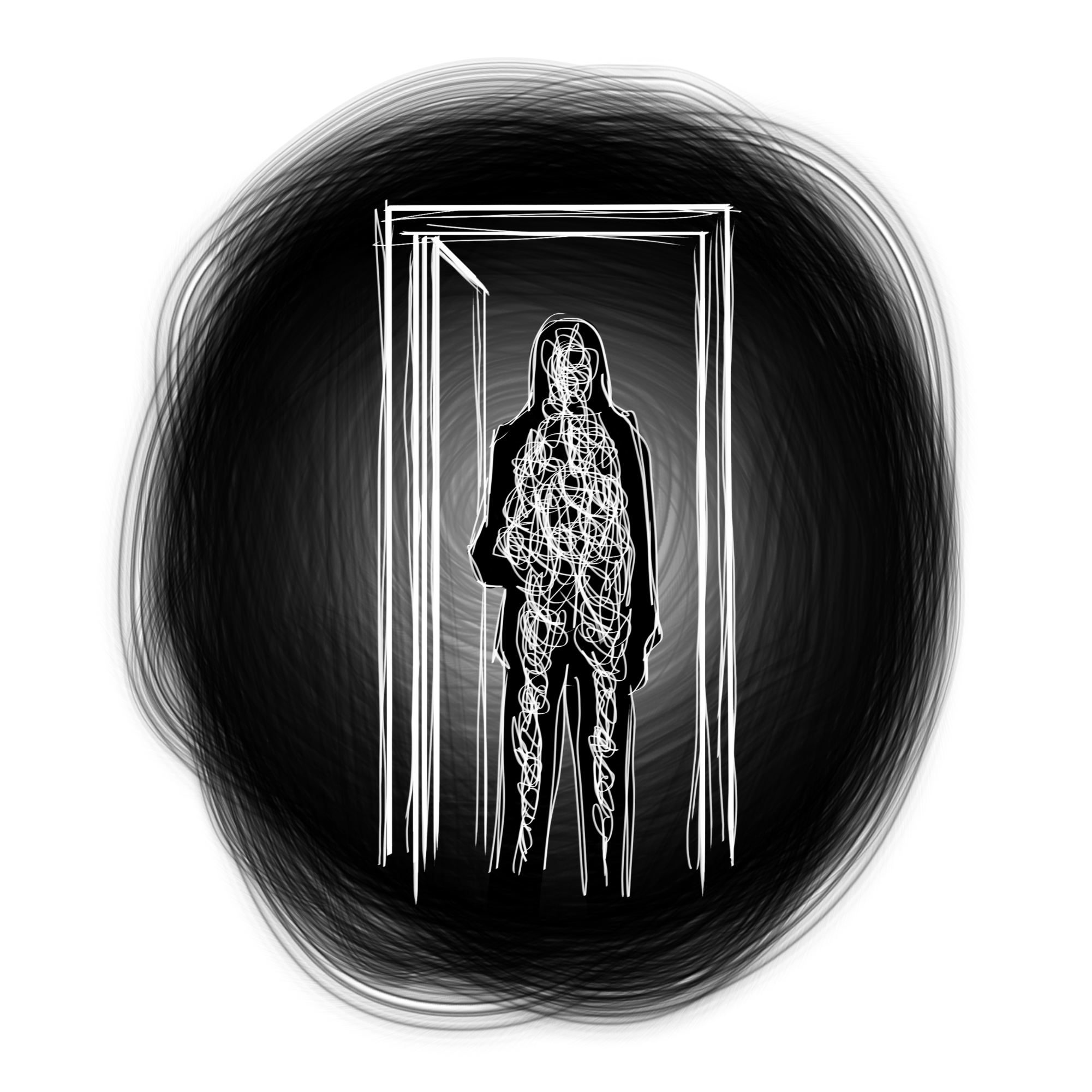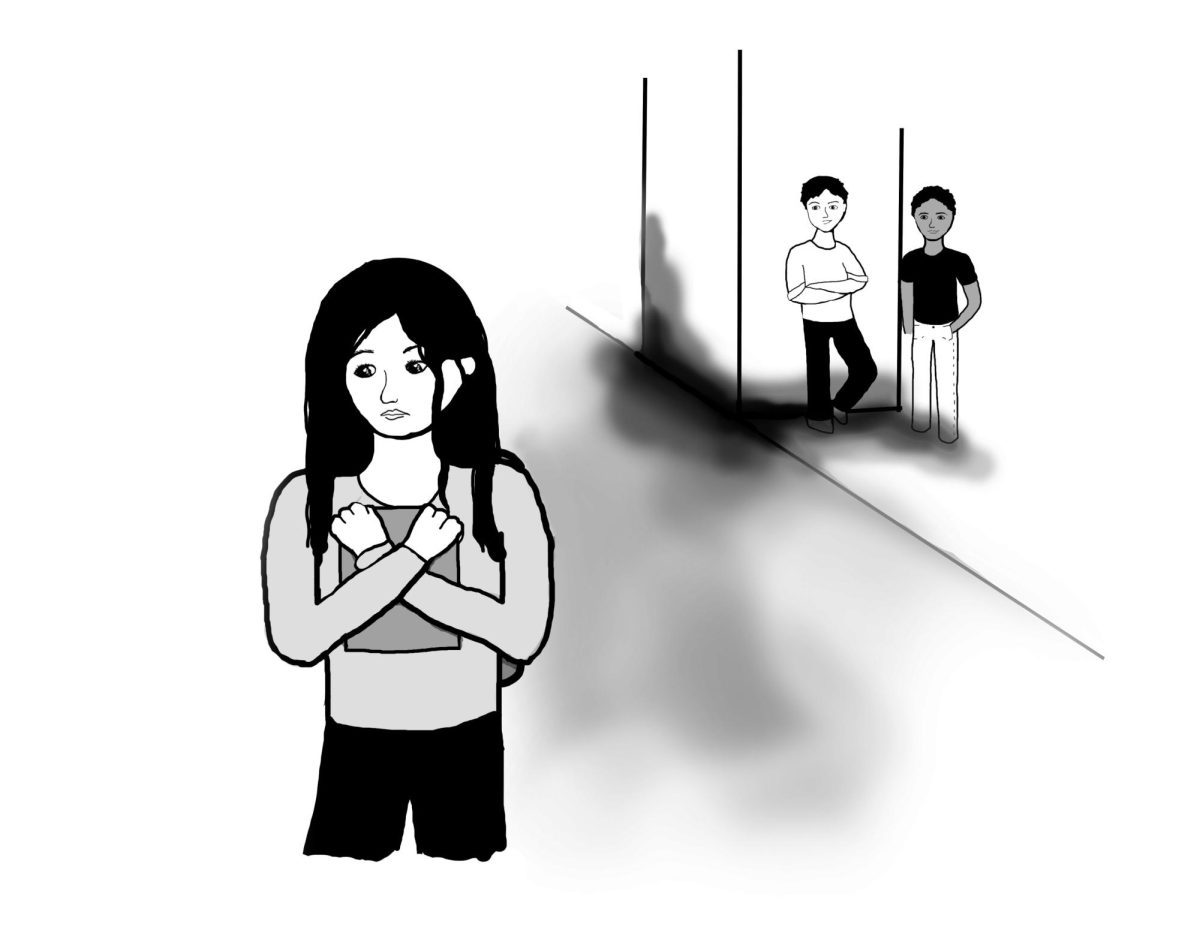
In her song “First Love/Late Spring,” singer-songwriter Mitski declares, “I was so young when I behaved 25, but now I find I’ve grown into a tall child.” To many young adults who grew up with mental health issues, this lyric makes perfect sense – or at least, that’s what I hope is true. I hope that I’m not alone in feeling like my body has grown, but my mind hasn’t quite caught up yet.
In the United States, college acts as a bridge between the teen years and adulthood. It’s a period of immense growth, change, self-discovery and maturation, and the societal expectation is clear: once you graduate college, you are now An Adult. I feel less like an adult every day.
I spent my childhood wishing I was a grown-up. A blend of anxiety, undiagnosed autism and depression made me feel estranged from my peers, and in resentment, I rejected my own childhood and pushed myself to look and behave as mature as possible. Now, nearing my 21st birthday, I live off chicken nuggets and sleep on dinosaur-print sheets. I can excel academically, but I struggle with basic life skills and self-care routines that might feel natural to other people my age. It reminds me of another lyric, this time from Taylor Swift’s “this is me trying”: “I was so ahead of the curve, the curve became a sphere. Fell behind all my classmates and I ended up here.”
When I reached out, looking for interviewees who could relate, I found a striking resemblance between myself and the people who answered. Senior Taylor Winters said that as a child, they were very self-conscious about appearing childish. “[I stopped] playing with dolls, [stopped] watching Disney,” they said. “I remember really consciously thinking about if I should start calling my mom ‘mom’ when I was like seven.”
When I asked them if they felt like this anxiety came from external sources, like feeling that their peers were more grown up than them, or if it was more of an internal expectation, Winters said they weren’t sure, and that it was probably a combination of both. They said they were scared of being “the last baby” in their friend group.
Junior Chloe Jackson also compared herself to her peers from a young age. “Going into first grade … I didn’t know how to read. But one of my closest friends knew how to read and they could read really well. And I was worried I was going to fall behind and it would snowball,” she said.
As she got older, Jackson constantly worried about her future. By high school, worry had become all-consuming. When I asked what made her first seek out therapy, she said: “It’s not normal to be crying every day my freshman year of high school worried that a single ‘low’ grade is gonna not get me into a specific school or get into any colleges at one point, therefore wrecking all of my plans for the future.”
Both Jackson and Winters said that in hindsight, they had been struggling with anxiety since early childhood, but they didn’t realize it until it became a bigger problem between the ages of 11 and 14. Whether this had something to do with the difficult transition to middle and high school, the new influx of hormones associated with puberty, individual life events or something else, I can’t say for sure, but I know that’s when things got worse for me too. And therein lies the issue.
At least in Western culture, being a teenager and young adult is about developing a personal identity, gaining independence from parents, forming friendships, exploring sexuality and making mistakes from which we can learn. But for someone paralyzed by anxiety or depression, reaching those milestones is a lot more difficult. Building social skills and finding a friend group can feel impossible when you have social anxiety. How can you explore new interests and hobbies when depression drains the joy out of everything? How can you have healthy conflict with your parents when your anxiety has convinced you that it’ll make them stop loving you?
I’m not qualified to psychoanalyze Jackson and Winters, and I won’t, but based on how they talked about their childhood anxiety, I can sense a pattern. In elementary school, my anxiety manifested as a need to appear as put together and grown up as possible. I pushed myself to reject the carefree life that is owed to a child, whether that manifested as prematurely worrying about college like Jackson did, or pretending to no longer like kids’ TV like Winters.
But, once I hit my teenage years, all that pent up anxiety and shame curdled into more severe issues. While once I had worked hard to be years ahead of my peers in maturity and life skills, now it was a struggle to keep up. By the time I reached college, I was left with the sinking realization that I had no idea how to exist in the way I was ‘supposed to.’
Both Jackson and Winters said that they had dips in their mental health when they first moved to Whitman.
“Coming to school was a big transition that brought up a lot of different … depression, anxiety things,” Winters said.
Jackson recalled her own transition as being especially tough in the first month. “First day I was on campus, my mom’s like, ‘Talk to the counseling center. You need a therapist,’” she said.
Whitman College Counseling Center therapist Brandon Weimer says he often sees a large influx of first-year students in the fall semester, especially those who have earlier treatment histories.
“[I also] see an uptick in more juniors and seniors during the spring due to developing concerns related to issues such as graduation and other academic concerns,” Weimer said.
Entering and leaving college are periods of transition, and transitions can be a huge source of stress. Beginnings and endings, markers of getting older, new experiences – these moments are meant to be joyous, but they’re also terrifying. Especially when you have an expectation about what you’re Supposed To Do or Supposed To Be, but don’t feel that you’re there yet.
Despite their significant influence, I’m not even sure where those expectations come from. Is it our culture? Is it parental expectations? Comparing ourselves to siblings and peers? Who made the rule that once you’re 18, you need to be independent from your parents, and once you graduate, you’re automatically An Adult and need to have everything figured out? As I look closer at all the rules I’ve memorized, about where I’m ‘supposed to be’ at this point in my life, they get more and more nonsensical.
I wonder if they’re just self-imposed. Of course, our society does have general age milestones, like graduating high school at around 18 and either joining the workforce or starting college. But not everyone’s life takes a perfect, milestone-hitting trajectory. In fact, I’d argue that most peoples’ probably don’t.
Winters, Jackson and I described our anxiety manifesting itself in obsessive comparisons to other people. When you live with a mental illness, your brain and therefore your experience of existing, will be different from the baseline of a ‘normal person.’ And especially with an illness like anxiety, which can often fixate on social situations and relationships, this feeling of difference can be incredibly difficult to deal with. Trying to figure out what ‘normal’ is supposed to look like and trying to emulate it can be one way that mentally ill people attempt to cope with the discomfort of feeling out of place in a world made for neurotypical people.
I feel anxiety, depression, self-loathing and social isolation because I don’t fit into the mental standard I have constructed of what a person my age is supposed to be. But I only constructed that standard in order to help myself overcome anxiety, depression, self-loathing and social isolation. It’s a vicious cycle of trying to embody an imagined ideal, failing and then spiraling and needing to fall back on the very coping mechanisms that made me feel childish and immature in the first place.
So what are these coping mechanisms?
As Winters said, “We just want to be like giant babies.”
The more that the crushing responsibilities of adult life loom over me, the more I want to give myself the childhood I avoided when I was a child. I want to play video games instead of working, eat buttered noodles instead of forcing myself to develop a more refined palate. Despite the shame I feel, I don’t think there’s actually anything wrong with that. Decompressing from the stress of adult life by watching Bluey, buying yourself the Barbie dolls your mom wouldn’t get you as a kid or getting a Happy Meal shouldn’t be a source of embarrassment if it’s genuinely therapeutic.
Winters says that they try to surround themself with people who can understand and relate to the desire to “be baby,” and that it creates a healthy and calming environment for them.
“I do find a lot of like comfort in that,” they said. “I think people who don’t get it can view that as like, ‘Oh, you’re being childish, or being annoying or come on, be an adult’ and in my head I’m just like I’ve been adultish.”
Setting healthy boundaries and knowing when to take a break has helped Winters.
Jackson says that going to therapy has been a huge help, both in talking through her emotions and digging deeper into why she’s feeling that way in the first place. She recommends journaling, especially in the time between therapy sessions.
“You still need to sort through these emotions; you can’t avoid them. Avoidance can only get you so far before you start bottling it up and not focusing on those emotions that need to be focused on, that need the time and place to be unpacked. And so I found journaling really helpful for facing my thinking head on.”
Mental illness isn’t a monolith, and cannot always be resolved solely through self-care. Jackson also mentioned that medication has been huge in her recovery process, and both her and Winters talked about the importance of having or finding a good support system.
I can’t say I really have any of this Adult Thing figured out. But I guess that’s kind of the point: that I don’t need to have it figured out in order to deserve to live a happy life. We don’t need to hit every milestone in order for our journeys to be valid ones.
Editor’s Note: Taylor Winters is a pseudonym to protect the interviewee’s health privacy.









